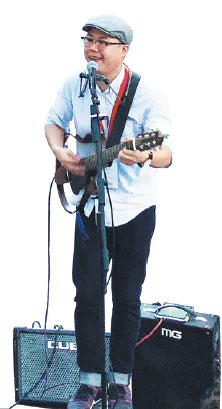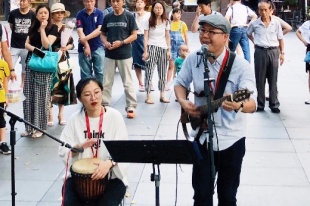For the love of music

Changing perceptions
According to its director Wei Zhi, the Shanghai Performance Trade Association consulted street art administrations in other countries and regions before the launch of its licensing program in Shanghai.

Countries such as the United States, Australia and Spain have long regarded street performers as a recognized occupation. In New York City, for example, street artists whose livelihoods depend on performing are required by the government to showcase their talent in specified areas after acquiring their licenses.
It took Wei and her colleagues several months to evaluate the candidates for the first batch of licensed artists. The criterion was based on the level of talent and professionalism. Those who passed this round of evaluation had to undergo another audition.
As information about the program spread, more street artists including Yu and Liu came forward to apply for a license.
"Getting the license is not the most difficult part of our artistic career. Being accepted and understood is much harder than that," said Yu.
Street performances are not novel in Chinese society. It has a long history in the country, as documented in literary works describing how people used to make a living by performing stunts in public places to make a living. Gradually, beggars adopted this method of income generation, usually playing the erhu (Chinese traditional two-string bowed instrument) or flutes.



































